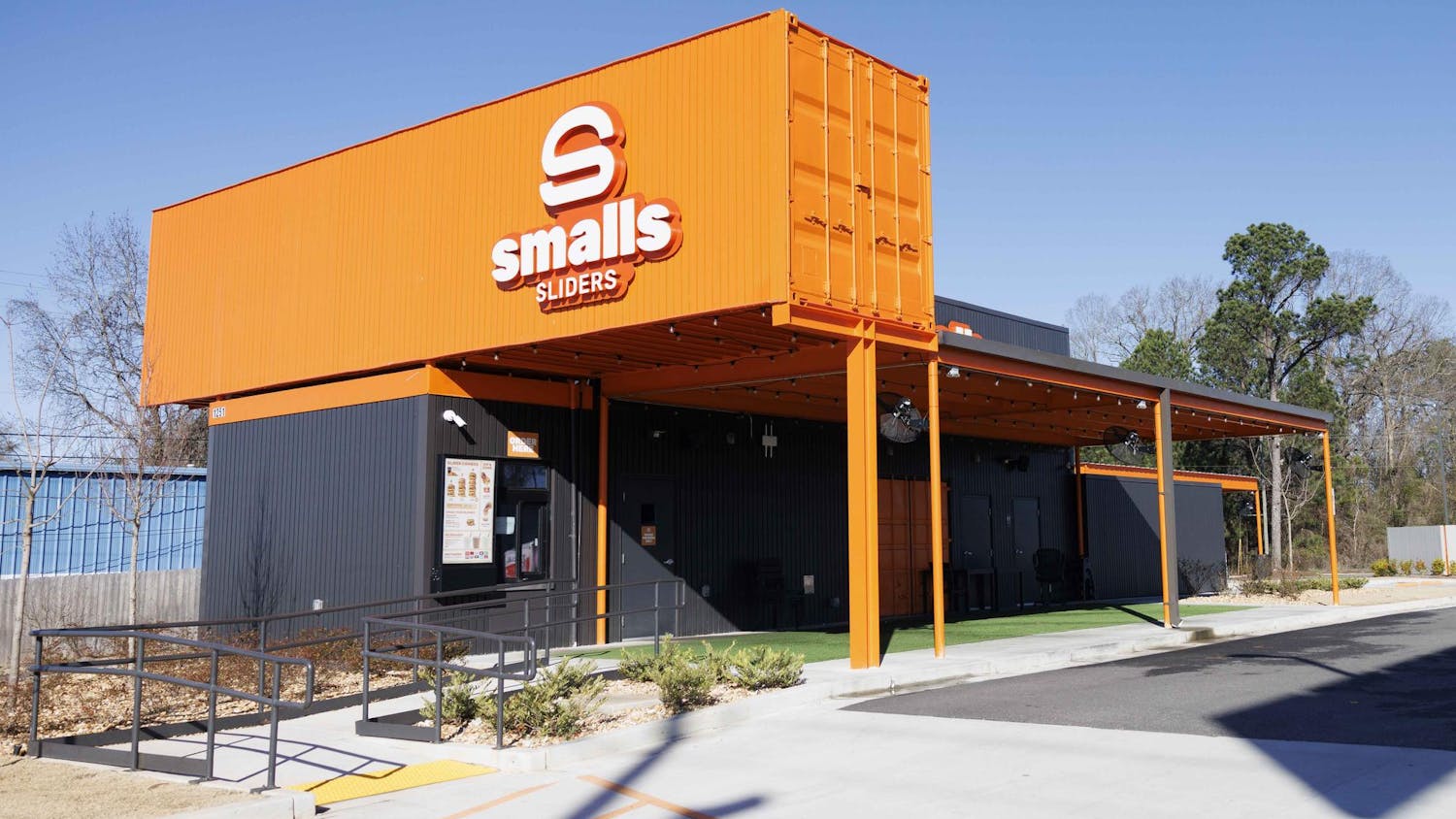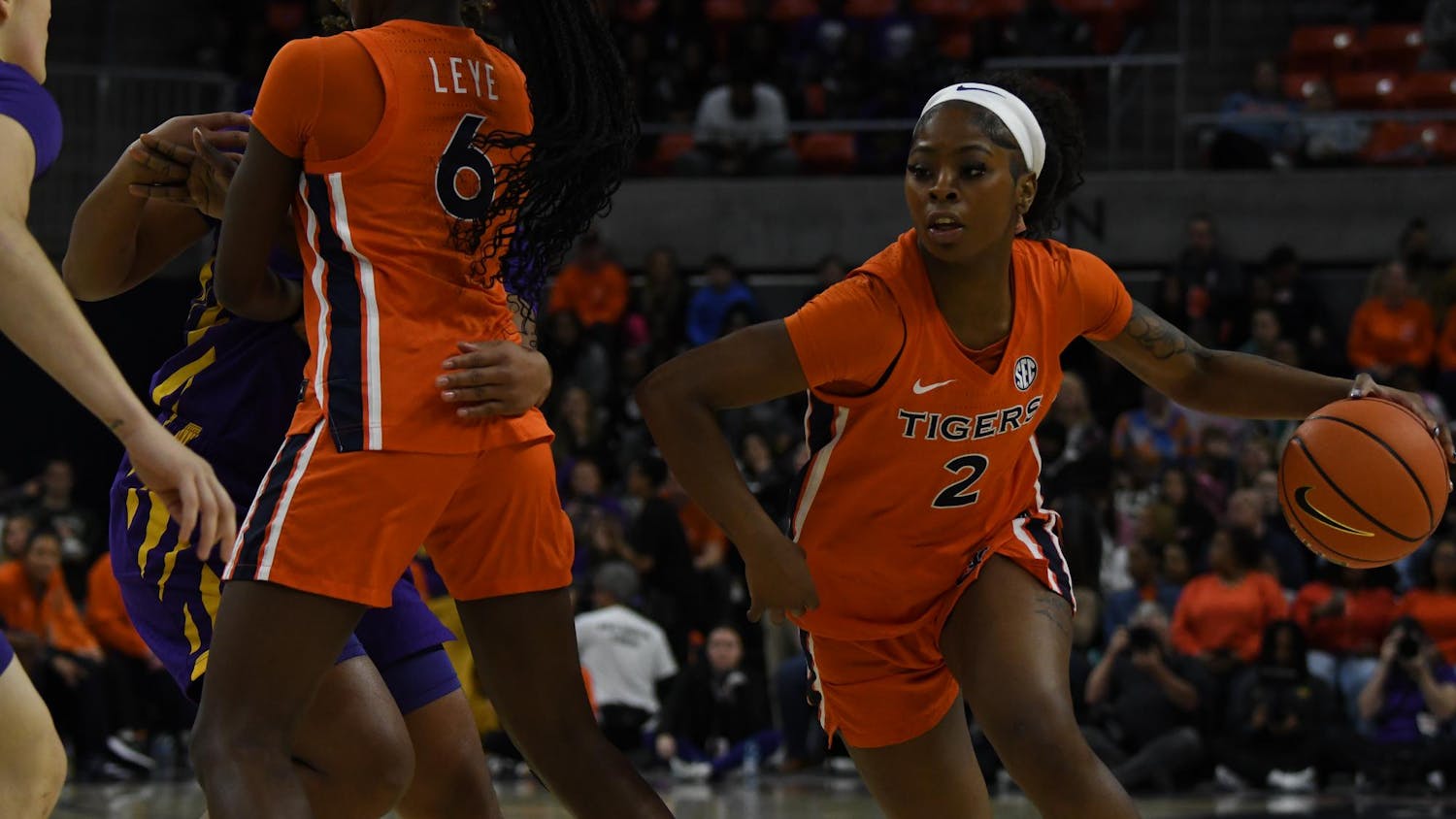In a small town about 45 minutes from Auburn, an organization is working to change how locals can produce and consume both their food and energy.
Little USA Solar Farm is a nonprofit startup based in Union Springs, Alabama, working to enrich the community through its environmental efforts. The Little USA team is currently in the planning process for building a complete solar farm, greenhouse, community center used for education and an electric vehicle charging station. The organization will offer job certification and re-training in solar energy and agrivoltaic farming to its members.
The project will be located on 25 acres of land donated by the Jordan-Allen-Hall family who have lived in Union Springs for over 100 years.
Herb Ferrette, founder and CEO of Little USA and a member of the Jordan-Allen-Hall family, said Little USA is a legacy project for the family and a way to give back to the community.
“I threw out the idea of a solar farm and my family said yes, but unlike the Sinclairs or the Rockefellers, it’s not like they threw me money to get this done,” Ferrette said.
Ferrette said the family decided to create a solar farm because unlike other energy sources, the energy from the Sun will not be leaving anytime soon, and eventually the project’s expenses could match the revenue generated by the panels.
However, due to current legislation in Alabama, independent energy producers like Little USA are unable to profit from selling energy to the grid. So the company often relies on loopholes in the current system to get into the market.
“There is a loophole where Alabama Power will buy our battery power in order to provide off-peak power to residents," Ferrette said. "But legislative change will make it all different to where we can get fair value for our electricity."
While the project is based upon solar energy, there will be other components of the project all working toward enriching the community it's in. Union Springs is located in Bullock County, part of Alabama's Black Belt, a region stretching across the state named for the dark pigment of its fertile soil and later characterized by its large Black population.
Many parts of the Black Belt have poor economic conditions and lack access to healthcare and education. Some areas in Bullock County are food deserts, and 2019 Census estimates say that around 30% of the population is living in poverty. Part of what Little USA aims to do is to give local residents technical skills and training for jobs that Ferrette believes will be increasingly valuable in the future.
“The goal of Little USA is to train the community and provide them with the opportunity to develop 21st- or 22nd-century technological skills so that they can be prepared for the future,” Ferrette said.
Ferrette said Little USA offers its members North American Board of Energy Practitioners training in solar power which will allow them to work in renewable energy anywhere in the United States.
Agrivoltaic farming is growing crops under solar panels. Crops like mushrooms and leafy greens are able to grow in the indirect sunlight of bifacial solar panels which capture solar energy while allowing light to pass through. Crops grown through agrivoltaic farming will be avaliable to the community and provide them with more fresh, local produce.
“By thinking globally and eating locally, we are able to deliver locally which solves a distribution problem and increases the quality of the produce available to consumers,” Ferrette said.
On-property food trucks will also be able to utilize crops grown through agrivoltaics and the greenhouse. One food truck will be operated by Ferrette’s uncle Bernard who will serve hot links and red beans and rice. The other trucks will serve items based around the crops yielded by Little USA.
Auburn University has partnered with Little USA to help achieve their mission. Chandana Mitra, professor of geosciences at Auburn, has begun working with Little USA to get the University involved.
Little USA plans to have at least some aspects of this project operational by the end of 2021, according to Mitra.
“The first-in money would help us clear some land, put in the gravel parking lot and at least try and have some solar panels,” Mitra said.
Mitra said she hopes for Little USA to become an extension campus for Auburn University and eventually an educational tool for K-12 schools in Auburn.
“If Auburn University is engaged then students will gain a lot of hands-on experience for sustainability and renewable energy through Little USA,” Mitra said.
Little USA is already involved with education through the Bullock County School District.
“The plan is to begin the experiment from the middle school and then move to Little USA later on as the project grows,” Mitra said.
Anwar Walker, physical science teacher at South Highlands Middle School, has played a large role in bringing Little USA into the school system.
“Little USA gives me the opportunity to challenge the kids with knowledge they already have and build on that,” Walker said.
To get students involved, Walker started a sustainability club in conjunction with Little USA for middle and high schoolers in the Bullock County School District.
“The sustainability club is working on giving the community access to healthier foods and outdoor activities for a healthier lifestyle,” Walker said.
With the permission of Kelia Burns-Browder, principal of South Highlands Middle School, Walker has been able to use half an acre of the school grounds to create a community garden with students.
“A lot of the kids’ parents have farms, but they don’t really participate in that,” Walker said.
The students are helping with every step of the process and learning how to farm sustainably. The first set of vegetables will be harvested in August and distributed to the community.
Superintendent Christopher Blair donated a school bus to Walker so that the sustainability club can convert it into a mobile greenhouse. The mobile greenhouse will be used to propagate seeds and grow vegetables. Walker will be able to take the bus to the elementary, middle and high school which will allow him to include more students.

via Little USA Solar
Little USA also hopes to introduce solar panels to the club as part of the larger project.
“The kids here don’t have a lot of opportunities and the idea of being a part of something new that is still being researched like solar energy will be really exciting for the kids,” Walker said.
All of these parts work together to create a more sustainable culture, which was all part of Ferrette's plan for Little USA.
“The programs form a circular relationship, we design programs that depend upon other parts and other programs in order in order to exist,” Ferrette said.
Do you like this story? The Plainsman doesn't accept money from tuition or student fees, and we don't charge a subscription fee. But you can donate to support The Plainsman.





